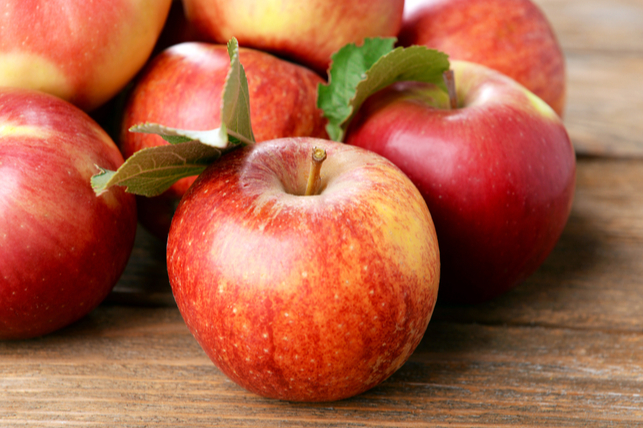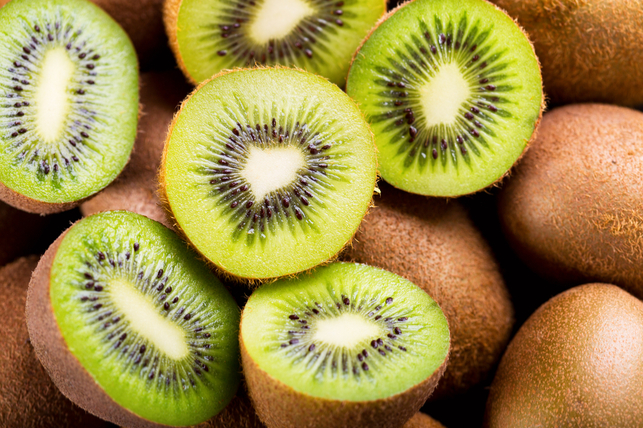It can be tempting to give your children pre-packaged snacks to satisfy their hunger and save a little time. But, a lot of packaged snacks contain a high amount of sugar or carbohydrates, which can lead to cavities. However, there are some super fruits will please your children – and make their teeth happy too.
Apples

Apples are high-fiber fruits, which naturally clean teeth as they’re being eaten! Apples scrub your teeth, gums and tongue as they’re being eaten because of their fibrous texture – particularly the skin. This helps fight plaque buildup, and helps remove surface stains from teeth. Apples also fight bad breath by removing traces of bad plaque and residue from the back of the tongue.
We suggest adding apple slices into your child’s diet as a dessert substitute. Keep the skin on the apple slices, so that your child gets all of the oral health benefits.
Kiwi

Kiwi is often mistaken for a citrus fruit, but it is actually considered a berry. Kiwis have fiber content, and are packed with calcium, which is a dental super mineral! Calcium neutralizes damaging acids and helps bolster your enamel’s defense. Enamel is the hardest substance in the human body, and the first line of defense your teeth have against cavities.
Strawberries
Another fibrous berry, strawberries are great for teeth and gums. Strawberries are packed with vitamin C, which helps your body produce collagen – a protein vital to maintaining your gums’ strength. A half cup of strawberries – between 4 and 6 berries – will give you about 70% of your daily requirement of vitamin C.
Limit Citrus Fruits
Food and drinks high in citric acid erode tooth enamel in a process called demineralization. In bad cases of demineralization, acid will work its way to the soft layer beneath the enamel called the dentin. These advanced cases lead to tooth sensitivity and pain. If you consume anything with high citric acid, rinse with water for 30 seconds afterwards to clean away some of the lingering acid.
Avoid Dried Fruit
Dried fruit contains much higher levels of sugar than their natural counterparts, and none of the water that helps make fruit so healthy. Let’s use prunes as an example. Prunes are just dried plums, except just one cup of prunes contains more than 400 calories and 45 grams of sugar. However, one plum contains just 75 calories and 16 grams of sugar.
Additionally, dried fruit can stick around on teeth long after snacking has concluded, and cause prolonged acid attacks that can erode enamel and lead to cavities. The bottom line is that you should choose fresh fruit and not dried fruit.
Visit our Office
If you’re concerned about your child’s diet affecting their oral health, or worried that they may have cavities, then visit our office. We will perform a comprehensive oral exam, and determine the best treatment plan for their specific case. We can also offer advice on dietary choices that improve oral health, and how you can help keep your kids away from cavities.

